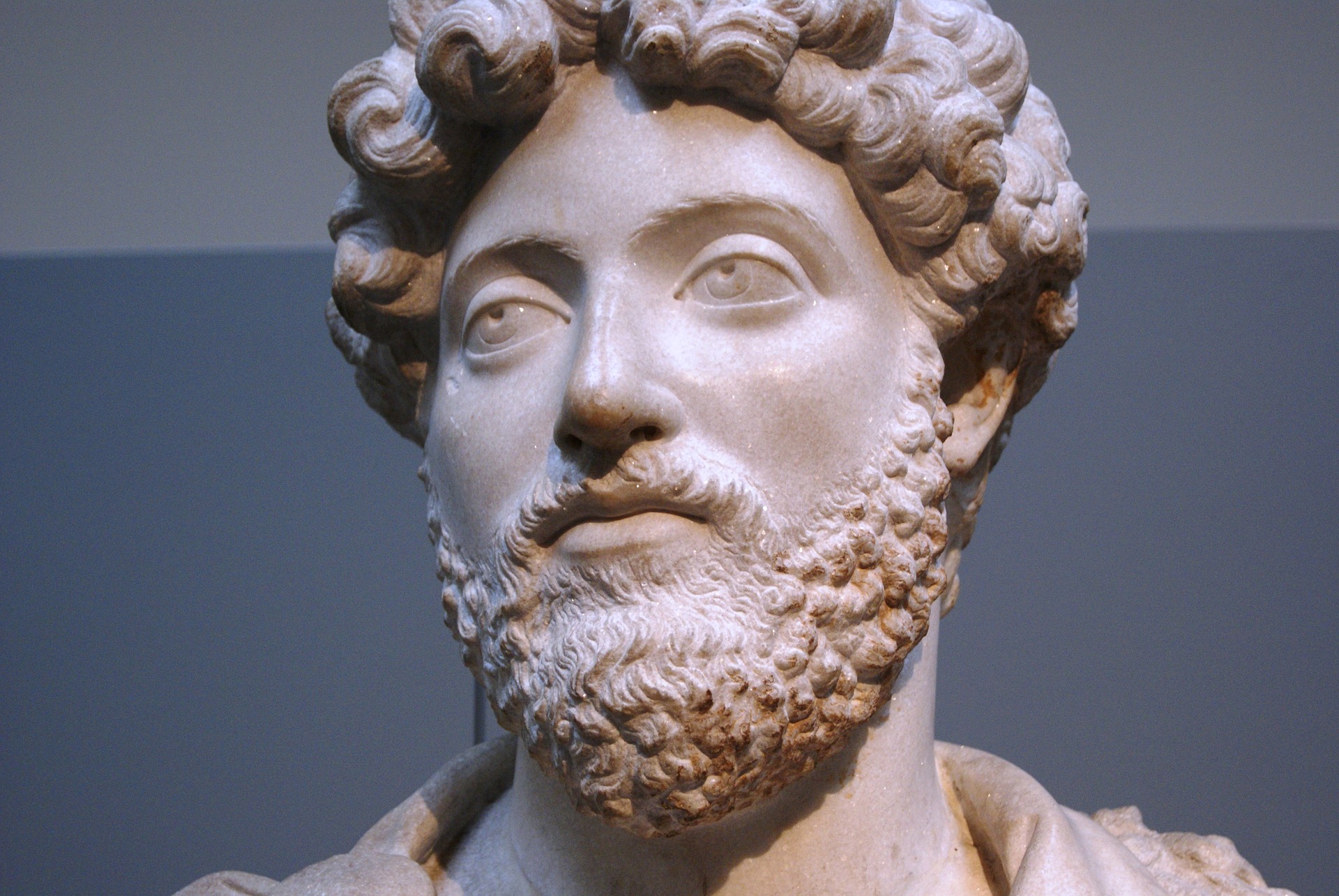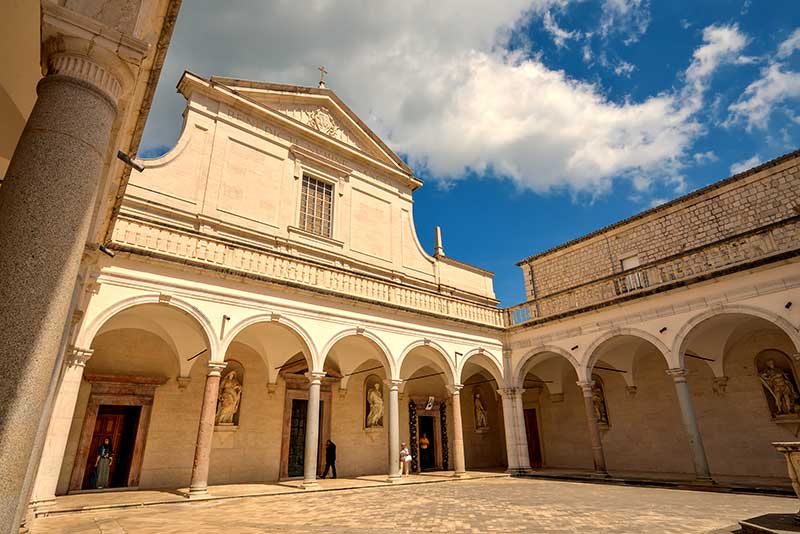Marcus Aurelius, one of the greatest Emperors of Rome and an important philosopher, was born on April 26, 121 AD, the son of Marcus Annius Verus and Domitia Lucilla, who were both from wealthy patrician families. Despite their status, they practiced the old Roman virtues such as piety and modesty, and instilled them into their son. Even though his father died young, when Marcus was only three, he honored him and his mother as role models.
He was adopted by his grandfather and given a solid education at home by tutors, who, among other subjects taught him the Greek and Roman classics, rhetoric and philosophy. Despite the wealth he was surrounded with, he went so far as to wear rough clothes and even sleep on the floor for a time. He probably would have been quite content to devote his life to philosophy, but events intervened.
In 138 AD the Emperor Hadrian named Marcus’s uncle through marriage, Aurelius Antoninus, as his heir and he in turn adopted Marcus and another promising young man, Lucius Verus. While wanting no part of the pomp and glory, Marcus saw it as his duty to accept his new status and moved into Hadrian’s palace.
The Roman Empire was in its golden age, “the period in the history of the world during which the condition of the human race was most happy and prosperous”, as the historian Edward Gibbon put it. Most of the known world enjoyed the protection of Rome’s armies, the justice of its laws and eclectic civilization. Starting with the accession of Trajan in 96 AD, a series of good Emperors presided over it and preserved the pax Romana.
Hadrian soon died and was peacefully succeed by Antoninus, who then arranged for Marcus to marry his daughter Faustina. He was given several important positions, which he reluctantly accepted, always trying to live what he called the right life of a philosopher. Despite this and relatively poor health he performed well in civic life and continued his studies, especially in the branch of philosophy known as Stoicism, which he took to heart. It is a school of philosophy which teaches one to be unaffected by either happiness or sorrow, pain or pleasure, but rather to accept everything as part of the divine will, and to do one’s duty accordingly.
He became Emperor following the death on Antoninus in 161 AD. He insisted that the latter’s other adopted son, Lucius Verus, should also be recognized and had the Senate name him as Emperor as well. Both were extremely popular; they lived simply and avoided extravagance, saw to the care of the poor, alleviated famines, appointed capable officials, reformed the law and allowed freedom of speech.
Sadly, the calm did not last. The Parthians, from modern Iran, took over the Roman protectorate of Armenia, and barbarians began crossing the northern frontiers. Lucius was dispatched to the east and was able to retake Armenia in 163 AD. The war continued for two more years, with the Romans decisively defeating the Parthians. The two Emperors were given a triumph, but unfortunately among the unwanted spoils of war was a plague, which claimed the life of Lucius in 169 AD and affected Marcus.
Matters went from bad to worse. Barbarians continued raiding along the long northern European frontier of the Empire, some even reaching Italy itself. Despite his sickliness, Marcus left Rome and took personal command of the army, eventually achieving victory and annexing more land in north-central Europe. Meanwhile, a revolt had broken out in the eastern portion of the Empire, but ended when its leader was assassinated in 173 AD. Marcus then toured the rebellious provinces and was given a triumph upon his return to Rome in 174 AD. He saw it as his duty to return to the frontier the next year where he won more victories and was preparing to further expand the borders when he fell mortally ill and died in 180 AD in what is now Vienna.
Even if Marcus Aurelius had never been Emperor, he would still be remembered as one of the most important philosophers. In the lulls while fighting on the frontiers, he penned a series of Stoical reflections which he titled Thoughts to Himself, now known as The Meditations. In them he reviews the events of his life in a series of short paragraphs which serve as a comprehensive overview of Stoicism. He sees himself, and all humans, as participants in a divine plan to which one should conform by experiencing the joys and travails of life with equanimity. Justice, rationality, truth, forbearance, patience, duty and piety are virtues to be cultivated.
People throughout the ages have been inspired by the book, and it serves as a basis of one of the leading modern branches of psychology, cognitive behavioral therapy.
Unfortunately, he was succeeded by his son, Commodus. As a harbinger of things to come, his mother dreamt she had given birth to a serpent before he was born. Despite the upbringing and example set by his father, he seemed to be troubled by a touch of madness, which only worsened. He abandoned the lands annexed by his father and made a hasty peace with the barbarians so he could devote himself to the attractions of imperial life and more. His ascension marked the beginning of the end of the Roman Empire, which, nevertheless, thanks to the strong legacy left by Marcus Aurelius and the other good emperors managed to survive almost 300 years longer. His advice rings true to our day, “While you are alive and it is in your power, be good.”






























